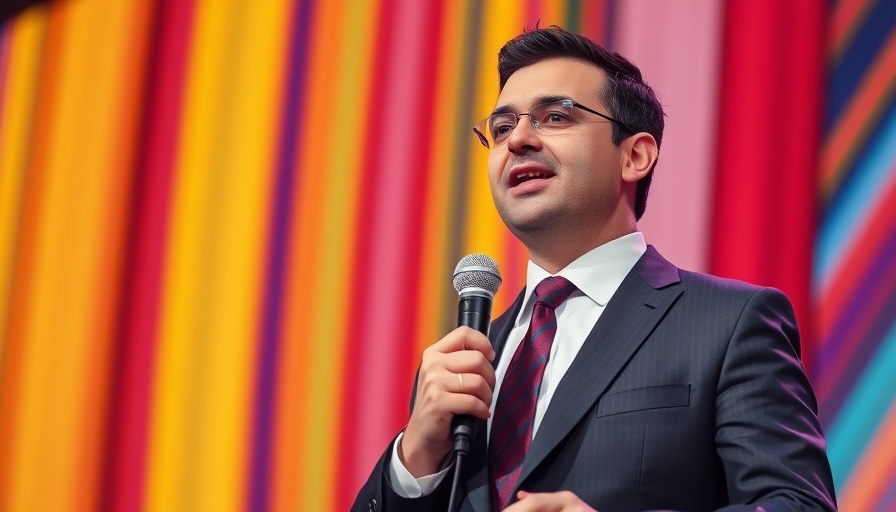
The Rise of Bots and Impact on Authenticity in Social Media
In a digital landscape saturated with social media platforms, users are increasingly left questioning what they see online. Sam Altman, an influential figure in AI and technology, recently voiced concerns regarding the prevalence of bots and how they contribute to a perception of inauthenticity on these platforms. His revelation stemmed from interactions on the r/Claudecode subreddit, where he found it increasingly difficult to ascertain whether posts were genuinely human or crafted by automated systems.
Understanding Altman's Perspective
Altman adeptly highlighted the alarming erosion of trust among social media users. As he scrolled through the subreddit filled with user testimonials about OpenAI's Codex technology, he jestingly questioned the authenticity of the overwhelming positive posts. "Is it possible to switch to Codex without posting a topic on Reddit?" he quipped, revealing a critical understanding of the morphing dynamics within digital conversations.
His insights remind us that while AI is designed to simulate human communication, it also challenges the nature of human interaction itself. Altman's analysis reveals a concerning trend where real people begin to replicate the quirks of AI language, resulting in a cycle of content that sometimes feels more artificial than authentic.
The Role of Human Behavior in Digital Communication
This phenomenon isn't entirely new; fandom dynamics have historically led to bizarre behavioral loops online, amplifying collective sentiments that can diminish individual voices. Within tightly knit communities, members often mirror each other's language and subject matter, creating an echo chamber effect that may skew reality. Altman noted that many users have inadvertently adopted the vernacular typical of large language models (LLMs), blurring the lines between human and machine-generated content.
Broader Implications for AI and Social Media
The implications of this revelation extend beyond Reddit. Social media platforms are increasingly optimizing for engagement, incentivizing creators to produce content that garners as much attention as possible. This optimization often plays into the hands of bots, complicating the landscape for authentic engagement. As Altman observed, the pressure to produce engaging content can lead to artificial interaction, further perpetuating a cycle of ambiguity regarding authenticity.
Looking Forward: The Future of Social Media Interaction
Understanding how bots influence user interaction can help both developers and users navigate this complex space. As we move forward, there are several key trends to consider:
- Technological Ethics: As AI continues to evolve, discussions around ethical development and use will become paramount. Ensuring AI complements rather than mimics human interaction could shape more meaningful connections online.
- Transparency Initiatives: Social media platforms may begin implementing stricter regulations on bot usage, potentially fostering a renewed sense of authenticity and trust among users.
- User Education: Teaching users how to identify bots or inauthentic posts can foster a healthier online environment where trust and human interaction thrive.
The Challenge Ahead
As the online space becomes more mechanized, the challenge lies in how we, as a society, navigate and redefine authenticity in communication. Altman's candid reflections serve as a crucial reminder that in our quest for tech advancement, we must also prioritize preserving the human experience online.
The conversation surrounding AI and its role in social media is just beginning, and as enthusiasts of this rapidly evolving domain, it is essential to stay informed. What measures are you taking to ensure that your online experience remains genuine in an age of AI-driven interactions?
 Add Row
Add Row  Add
Add 




Write A Comment